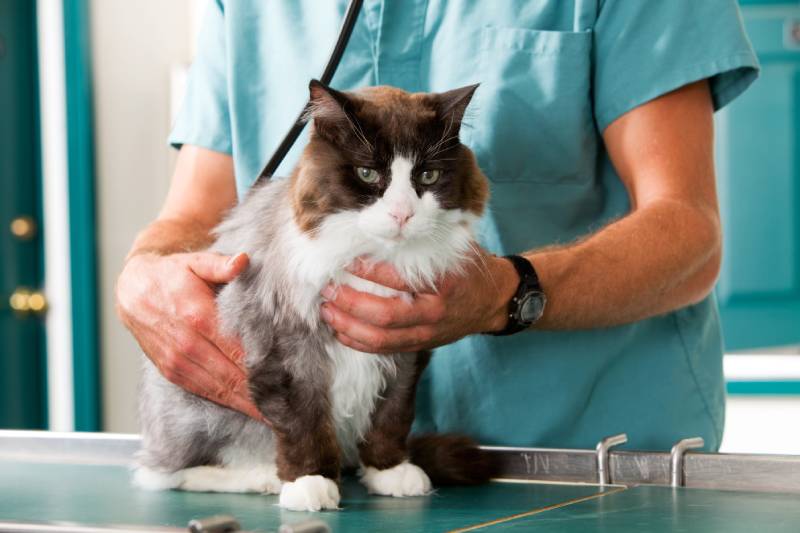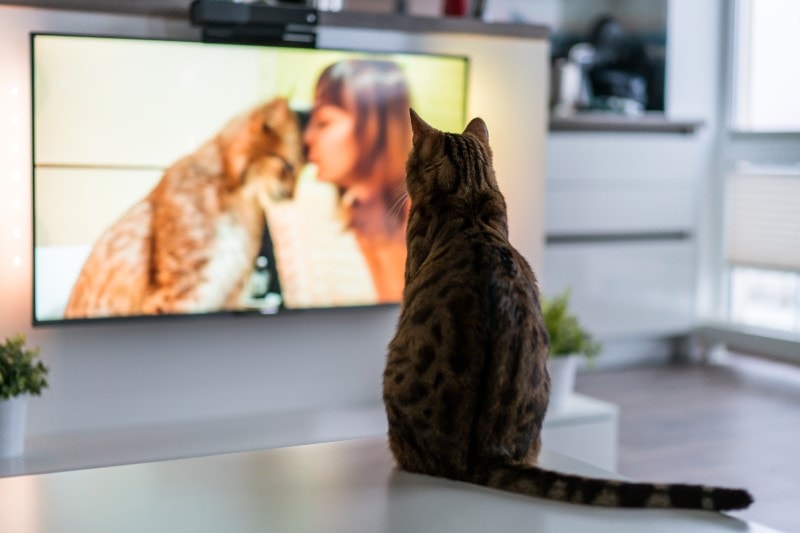Why Don’t Cats Like Their Paws Touched? 7 Likely Reasons
Updated on
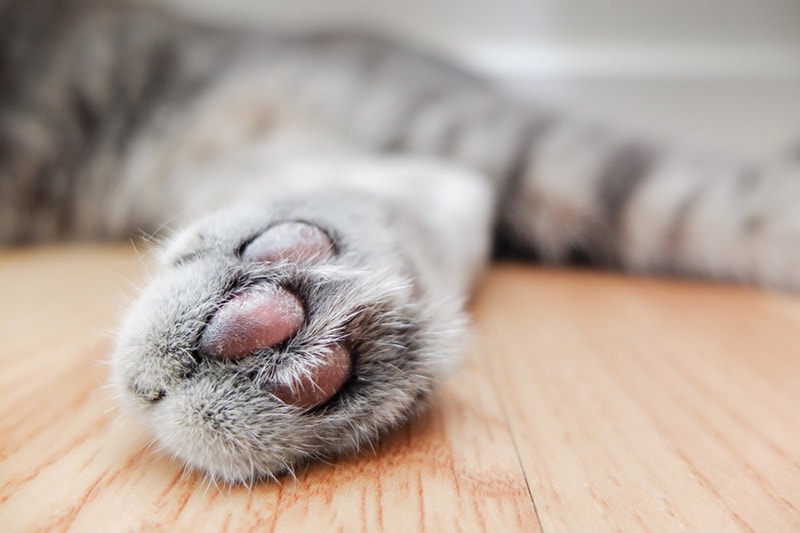
As cat parents, we’ve all reached over and tugged on our feline friend’s cute and squishy little paws. Of course, in most cases, your cat pulls the paw away instantly. Some cats will even hiss at you or swat your hand away. There are many reasons cats don’t like to have their paws touched. Cat’s paws are sensitive, and they are also how they defend themselves, so of course, some don’t enjoy having their weapons touched.
These aren’t the only reasons, however. In this list, we’ll give you a few of the reasons that cats don’t like to have their paws touched and even a few tips for training your cat to let you touch them.
The 7 Reasons Cats Don’t Like Their Paws Touched
1. Past Trauma
If your cat has been hurt in the past, and the paw was injured, it will connect the trauma with the hurt foot. The cat will be more resistant to their paws being touched as a way to keep the trauma from happening again.
This often happens with feral cats or cats you adopt from rescue shelters. In many cases, these cats have been abused in the past or even put in dangerous situations. It’s essential to be careful with cats that have been neglected or abused, not only when touching their paws but when trying to get them to trust you as well.
2. Injury
Sometimes, a cat doesn’t mind its paws being touched but suddenly starts resisting when you try to. In these cases, your cat may have recently injured its paw somehow. Even a scratch, bump, or bruise on a paw can be a big deal to your cat. Since they have sensitive feet, even a slight rub from you could cause the pain to become worse, ending in the cat shying away or becoming aggressive.
If you feel that your cat has injured its paw, it’s best to contact your vet for an appointment, so they can diagnose the problem and provide treatment.
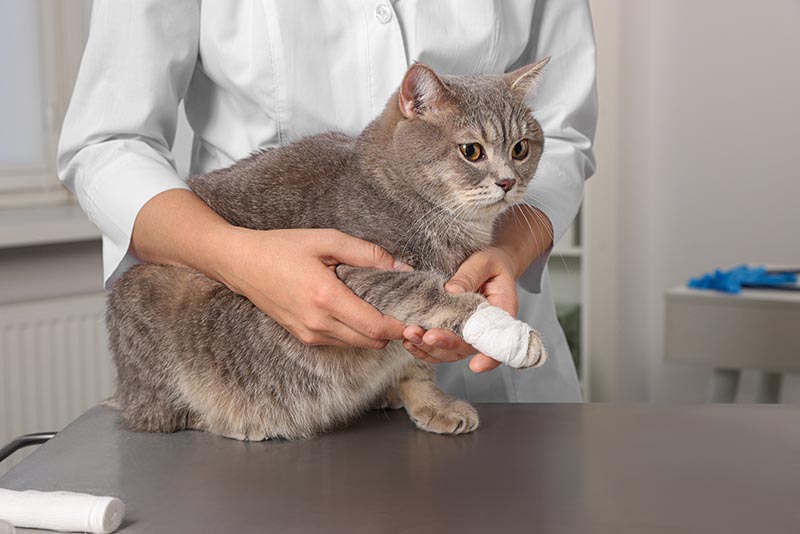
3. Cat Is Old
As cats age, they become set in their ways, just as people do. Some decide that they don’t want their paws touched. The most common reason, however, is that the cat has developed osteoporosis, which is often accompanied by joint pain. These are signs of feline osteoporosis you should be on the lookout for:
- Poor grooming
- Being less mobile
- Losing weight
- A general shift in behavior
If you suspect that your feline friend has osteoporosis, it’s best to contact your vet for help. There are treatments available for the pain and suffering.
4. Sensitive Paws
Cats have super sensitive paws. They are packed with nerve endings and provide much more than transportation for felines. Some of the things that a cat’s paws help them detect are listed below:
- Hot and cold temperatures
- Vibrations
- Different textures
- Movement differences
- Changes in the weather
- Predators or prey nearby
- Temperature differences in objects and the ground
All of these things are felt through the pads of your cat’s paws, so you touching its paws will make them even more sensitive, and some cats can’t handle that, so they pull away.
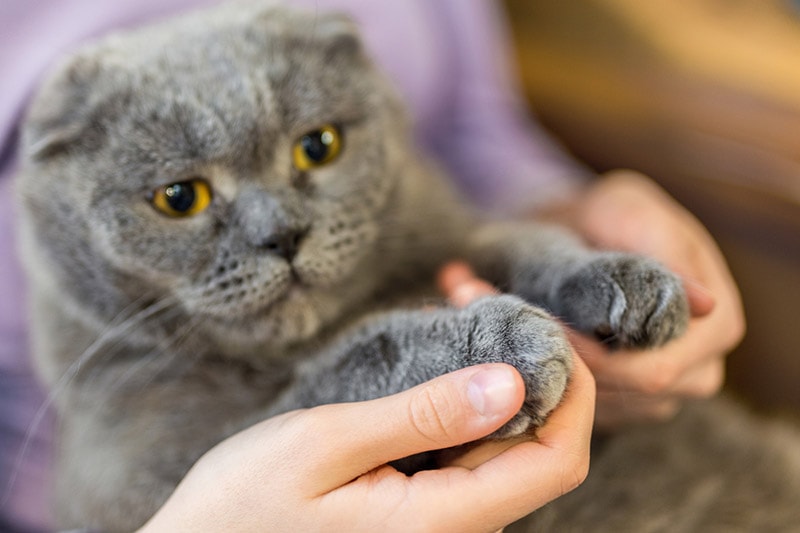
5. Rough Handling
Cats are sensitive creatures, to begin with, and they don’t like to be handled roughly. If you just suddenly grab your cat’s paw or apply excessive force to the cat’s paw, it’s going to react by pulling away, running away, or acting out. Cats are not like dogs in this instance. They don’t like roughhousing, and they don’t like overly familiar contact, even from their pet parents.
Many pet parents who have never been around cats make this mistake. They pick them up or handle their paws, treating them like they are dogs. This is a mistake that can end in the cat hissing, running away, or even biting and clawing the person they think is being a threat to them.
6. The Cat Just Doesn’t Like It
In many cases, it’s a simple reason. The cat just doesn’t like its paws to be touched. It has nothing to do with anything else on our list; the cat just simply prefers for his paws to be left alone.
Don’t take it personally. Cats, like humans, like their personal space. You can train and socialize a cat as a kitten to like its paws being touched, but that isn’t a guarantee. It’s best not to force your cat to let you touch its paws, as it can lead to the cat being fearful of you or even being aggressive every time you come near.
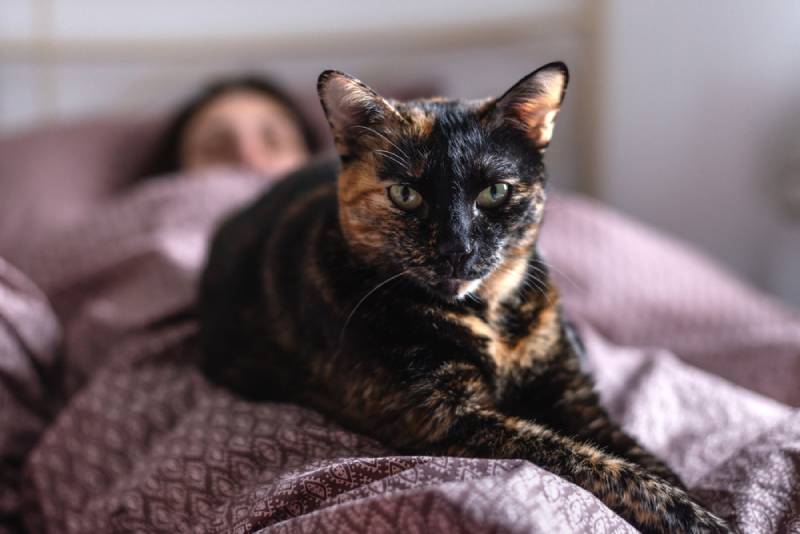
7. It Takes Away Their Ability to Defend Themselves
Cats use their paws to defend themselves in the wild, and someone grabbing one of their paws takes away their ability to defend themselves. Cats don’t like to feel vulnerable, and even though you’re not going to hurt your feline friend, it may think that you’re a threat when it can’t pull its paw away.
Paw Handling Tips to Follow
There are a few times when it’s going to be essential that you touch your cat’s paws, like if the cat is injured or its paws are too dirty for the cat to clean itself. Here are a few tips you can follow for training your cat to let you touch its paws:
- Only attempt to touch your cat’s paws when they are relaxed and calm
- Pet your cat with one hand while touching its paw with the other to distract it and keep it calm
- Use treats as a reward for allowing you to touch its paws
- Always be gentle
If none of these handling tips work for you, it’s best to enlist the help of your vet or a grooming professional.
In Conclusion
While there are cats that have no problems with their pet parents touching their paws, they are the exceptions. Most cats have issues with their paws being held because it takes away their ability to defend themselves, and their paws are sensitive. Although your cat must tolerate paw-handling when you check for injuries or visit the vet, you can leave your pet’s feet alone and focus on petting its head, back, or wherever it prefers.
Featured Image Credit: patthamapong, Shutterstock


